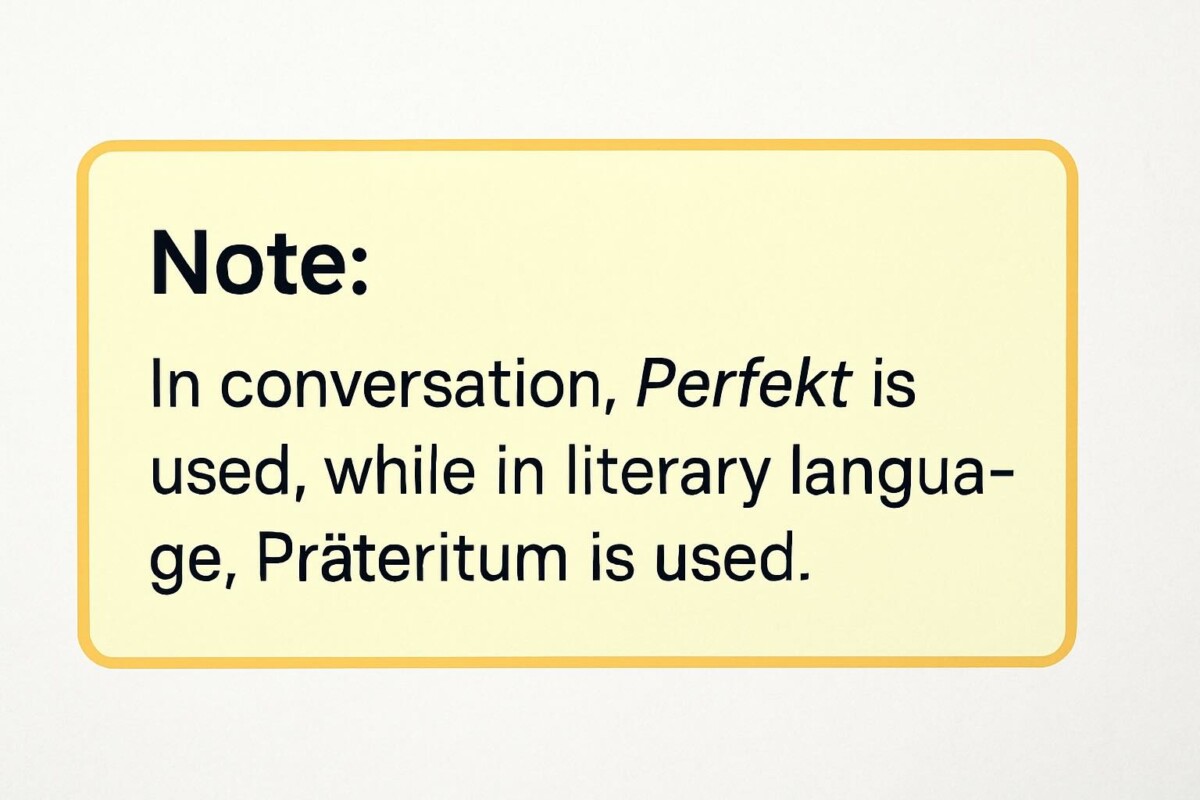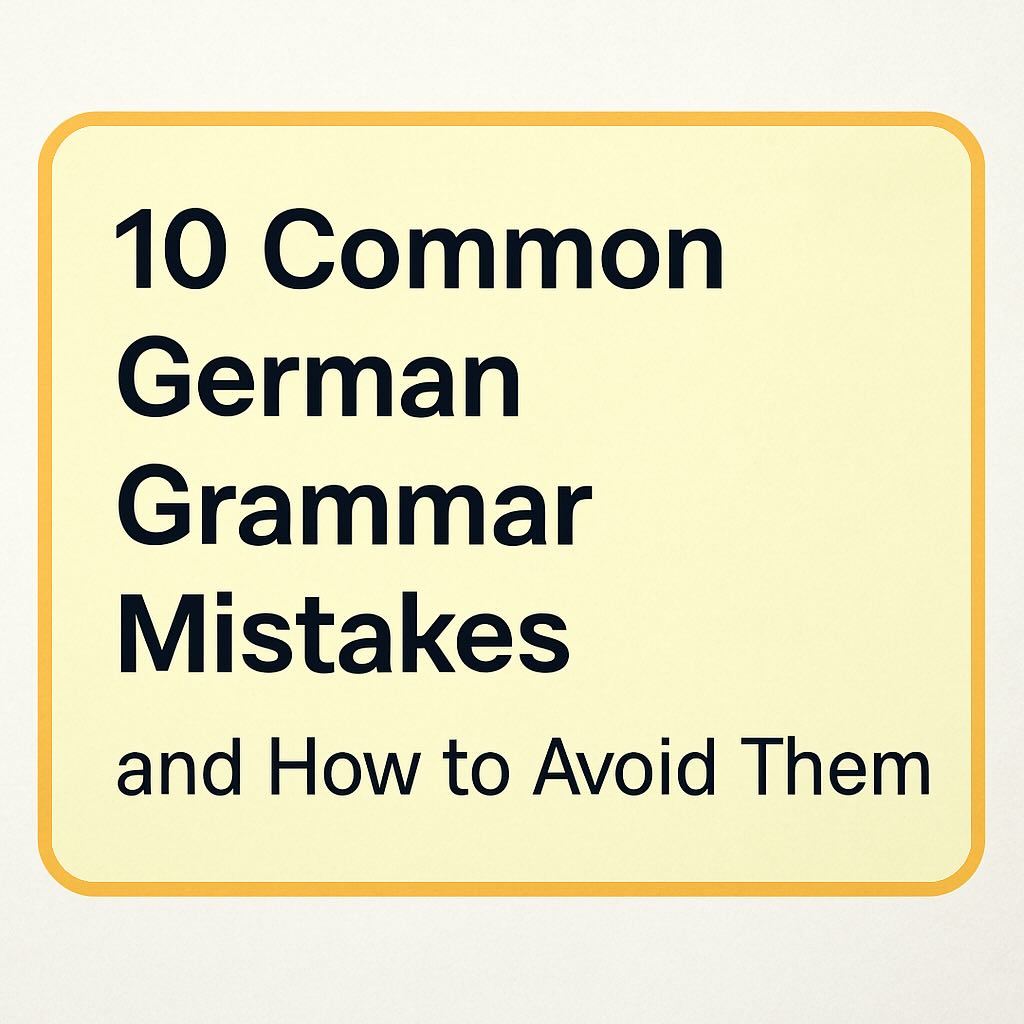🔗 选择语言
Learning German can be challenging, and many learners repeat the same mistakes again and again. The good news: once you know these typical errors, you can avoid them easily. Here are the 10 most common German grammar mistakes — with quick fixes and examples.
1. Wrong Word Order
❌ Ich Deutsch lerne.
✔️ Ich lerne Deutsch.
Rule: In main clauses, the verb must be in second position (V2).
2. Confusing Perfekt and Präteritum
❌ Ich spielte gestern Fußball. (sounds unnatural in speech)
✔️ Ich habe gestern Fußball gespielt.
Rule: Use Perfekt in spoken German, Präteritum in writing.
3. Using the Wrong Auxiliary Verb
❌ Wir haben gegangen.
✔️ Wir sind gegangen.
Rule: Use sein with verbs of movement and change of state.
4. Forgetting the Accusative
❌ Ich warte den Bus.
✔️ Ich warte auf den Bus.
Rule: Some verbs require prepositions, not direct objects.
5. Mixing up Dative and Accusative
❌ Ich gebe der Buch meinem Freund.
✔️ Ich gebe das Buch meinem Freund.
Rule: Accusative = direct object, Dative = indirect object.
6. Wrong Gender with Articles
❌ Die Auto ist neu.
✔️ Das Auto ist neu.
Rule: Always learn nouns with their articles (der, die, das).
7. Overusing “was” in Relative Clauses
❌ Das ist das Buch, was ich lese.
✔️ Das ist das Buch, das ich lese.
Rule: Use das不是 was, for neuter nouns.
8. Forgetting the Verb at the End in Subordinate Clauses
❌ Ich weiß, dass du lernst Deutsch.
✔️ Ich weiß, dass du Deutsch lernst.
Rule: In Nebensätze, the verb goes to the end.
9. Direct Translation from English
❌ Ich bin 20 Jahre alt habe.
✔️ Ich bin 20 Jahre alt.
Rule: German does not always follow English logic — check idiomatic expressions.
10. Confusing “schon” and “bereits”
❌ Bist du bereits fertig? (too formal for casual talk)
✔️ Bist du schon fertig?
Rule: 现在 = everyday German, 无 = formal/written style.
FAQ: German Grammar Mistakes
Q: Which mistakes are most important to fix first?
Word order and verb forms — they affect every sentence.
Q: Should I memorize all rules at once?
No. Focus on the mistakes you personally make most often.
Q: Do native speakers also make mistakes?
Yes, especially with cases and long sentences — but practice makes perfect.
Final Note
Avoiding these common mistakes will make your German clearer and more natural. Step by step, you will sound more confident.
👉 For a deeper exploration of mistakes and how they shape our learning, see Tymur Levitin’s Author’s Column.

📚 Related Articles
- German Word Order: The Ultimate Guide for Beginners
- Perfekt vs. Präteritum: What’s the Real Difference?
- Schon vs. Bereits: Why One Word Feels Warmer and the Other Colder
👨🏫 作者: Tymur Levitin — founder, director, and senior teacher at Levitin Language School | Start Language School by Tymur Levitin.
View teacher’s profile →
🌍 Learn German with us:
German Language Learning Page →
© Tymur Levitin | Category: German Grammar for Beginners
























